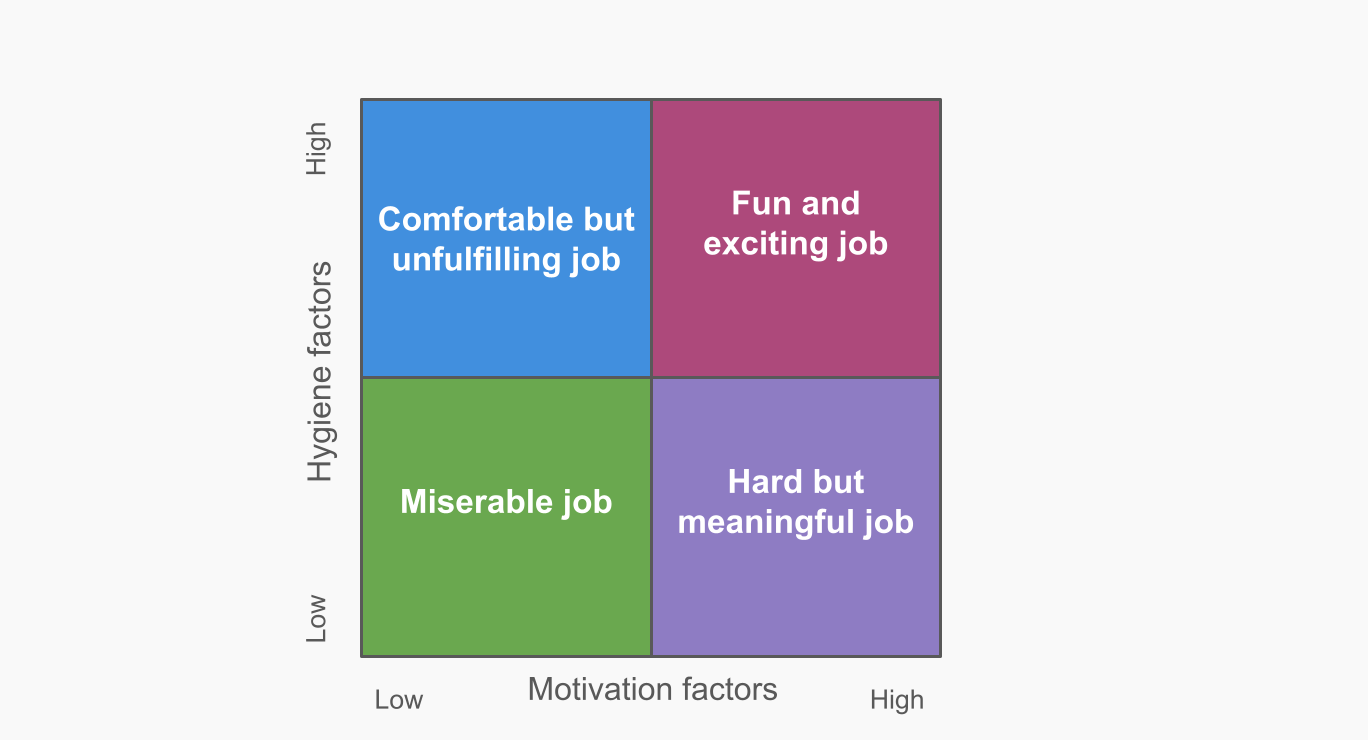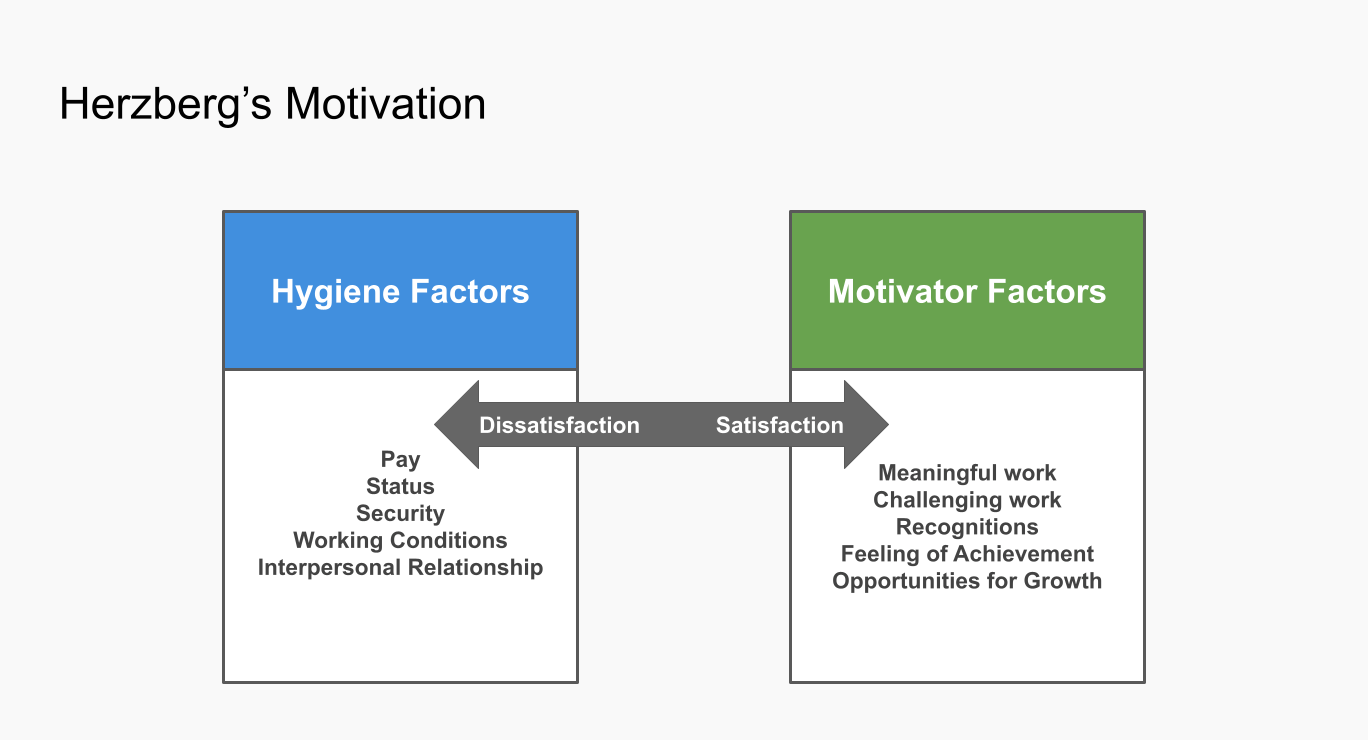Herzberg Two Factor Theory: A Comprehensive Guide To Motivation
September 11, 2024 · 5 min read
A manager is someone who compensates for a lack of authority through influence. Typically, functional managers wield much more authority than project managers. A crucial aspect that aids in exerting this influence is understanding what motivates team members. This is why it's essential for managers to be well-versed in motivation theories, one of which is Herzberg's Two Factor Theory.
What is Herzberg Theory?
Frederick Herzberg, a renowned psychologist, proposed a theory that everything influencing how you work can be categorized into two main groups: hygiene factors and motivators.
Hygiene factors include aspects such as working conditions, salary, work-life balance, company policies, job security, and status. These are the essentials that, if absent or inadequate, can cause dissatisfaction. However, their presence doesn't necessarily improve job performance—they simply prevent dissatisfaction.
Motivators, on the other hand, are elements that truly drive individuals to perform better. These include responsibility, opportunities for personal growth, recognition and praise, and career advancement.

Key Hygiene Factors
It’s critical to understand that hygiene factors alone do not motivate people to work harder or perform better. Their primary function is to determine whether an individual accepts a job offer or, to some extent, remains satisfied with their current position. Key hygiene factors include:
- Company Policies. Clarity and fairness in rules and procedures.
- Supervision. The quality of leadership and management support.
- Work Conditions. The physical environment, tools, and resources provided.
- Salary. Compensation that is perceived as fair and adequate.
- Relationships. The nature of interpersonal relations at work.
- Job Security. Assurance of continuity in one's job.
- Work-Life Balance. The ability to maintain a healthy balance between professional and personal life.
Key Motivation Factors
Motivators are the elements within a job that encourage individuals to strive for higher levels of performance. These factors are directly related to the content of the work itself. When employees feel that they are being given opportunities to grow, learn, and take on more responsibility, they are more likely to feel satisfied and motivated. Examples of motivation factors include:
- Achievement. The sense of accomplishment that comes from completing meaningful tasks.
- Recognition. Being acknowledged for a job well done.
- Work Itself. Engaging in work that is interesting and challenging.
- Responsibility. Having control over one's work and being trusted with important tasks.
- Advancement. Opportunities for career progression and growth.
- Personal Growth. Continuous learning and development.
One particularly interesting motivator is experience. People are often willing to go the extra mile to be part of a project they find meaningful and engaging or to work under someone who can significantly contribute to their learning and development. In fact, learning opportunities, in general, are highly motivating. Employees value the chance to acquire new skills and knowledge, which in turn drives them to perform at their best.

The Role of Money in Herzberg Theory of Motivation
Money, often viewed as a primary motivator, actually occupies a nuanced position in Herzberg's theory. While it is undeniably important, Herzberg categorizes salary primarily as a hygiene factor rather than a motivator. This means that while fair and adequate compensation is essential to prevent dissatisfaction, simply increasing someone's pay will not necessarily enhance their motivation or job performance.
However, money can become a motivator if it is tied to certain conditions, such as performance-based bonuses or profit-sharing. In these cases, money moves beyond being a mere hygiene factor and starts to serve as a motivator by rewarding achievement and encouraging higher performance.
Herzberg's Theory of Motivation in Project Management
Herzberg's two-factor theory is crucial in project management because it helps project managers understand what truly drives team performance. For instance, ensuring that team members are given clear responsibilities, opportunities for growth, and recognition for their contributions can lead to higher engagement and productivity.
This is particularly important in projects where innovation and problem-solving are critical, as motivated teams are more likely to deliver exceptional results. Moreover, by addressing both hygiene and motivation factors, project managers can build a team that is not only satisfied but also deeply committed to the success of the project.
Conclusion
Understanding Herzberg’s theory can provide managers with the insights needed to create a more motivating work environment. While ensuring hygiene factors are adequately addressed is important, true motivation comes from focusing on the elements that drive personal and professional growth. By recognizing and leveraging these motivators, managers can foster a more engaged and productive workforce.
About the Author
Sergey Koshevoy is the CEO of Planyway and a seasoned product manager with extensive experience in both project management and human resources. He has a deep understanding of team dynamics and collaboration tools, which he leverages to develop innovative solutions that enhance productivity and foster effective teamwork.


